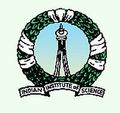| Talk | |
|---|---|
| Talk Title | Experimental Physics with Phoenix and Python |
| Speaker |
Kishore A
|
| Level | Beginner |
| Category | Normal talk (45 - 60 minutes) |
| Accepted | True |
| Scheduled | True |
| Presentation Materials | Click to see the presentation materials |
| Abstract | PHOENIX stands for Physics with Homemade Equipment and Innovative Experiments. It was developed by B.P.Ajith Kumar, a physicist at the Inter University Accelerator Centre, New Delhi, as an inexpensive data acquisition interface for carrying out Physics experiments with the help of computers. Phoenix basically consists of an ATmega16 board with digital and analog I/O pins, which is connected to the PC via the COM/USB port. What makes it easy to use is the Phoenix Python library which enables you to control the pins and read data easily using a couple of lines of Python code. This talk is aimed at familiarizing the audience with the Phoenix project, demonstrating its use for students and hobbyists, and its enormous potential to revolutionize science and technology education in our country. |
| Rating | Score: 8 from 8 ratings |
Rate this talk
When rating a talk, please select 'reject' only if you feel the talk is completely unacceptable or against the goals of the conference. If you personally are not interested in the talk, select 'No Comment'. If you feel the talk should be there, select 'Accept'.
This talk has 2 comments.
Comments:
Phoenix is a unique attempt to modernize Physics education in India through the use of low-cost microcontroller based hardware, and Python plays a very important role in its success. Check out the Phoenix home page at: http://www.iuac.res.in/~elab/phoenix/ ..
Posted by:
Pramode CE
I have voted for this, but I hope this talk is about the how/why of Python than the physics/education/India aspects of it...
Posted by:
Mathews Roshan
Please login or register if you wish to comment
Sponsors
Associate Sponsors
Associates
No recent posts








